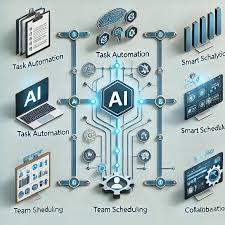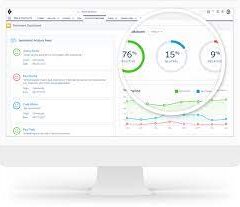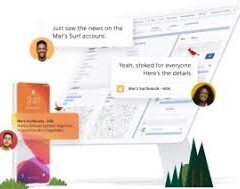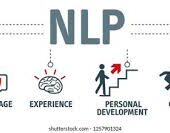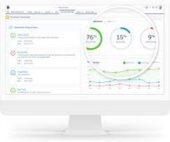Salesforce Doubles Down on AI Innovation with Agentforce
Salesforce, renowned for its CRM software used by over 150,000 businesses, including Amazon and Walmart, continues to push the boundaries of innovation. Beyond its flagship CRM, Salesforce also owns Slack, the popular workplace communication app. Now, the company is taking its AI capabilities to the next level with Agentforce—a platform that empowers businesses to build and deploy AI-powered digital agents for automating tasks such as creating sales reports and summarizing Slack conversations.
What Problem Does Agentforce Solve?
Salesforce has been leveraging AI for years, starting with the launch of Einstein in 2016. Einstein’s initial capabilities were limited to basic, scriptable tasks. However, the rise of generative AI created an opportunity to tackle more complex challenges, enabling tools to make smarter decisions and interpret natural language.
This evolution led to a series of innovations—Einstein GPT, Einstein Copilot, and now Agentforce—a flexible platform offering prebuilt and customizable agents designed to meet diverse business needs.
“Our customers wanted more. Some wanted to tweak the agents we offer, while others wanted to create their own,” said Tyler Carlson, Salesforce’s VP of Business Development.
The Technology Behind Agentforce
Agentforce is powered by Salesforce’s Atlas Reasoning Engine, developed in-house to drive smarter decision-making. The platform integrates with AI models from leading providers like OpenAI, Anthropic, Amazon, and Google, offering businesses a variety of tools to choose from.
Slack, which Salesforce acquired in 2021, plays a pivotal role as a testing ground for these AI agents. Currently in beta, Agentforce’s Slack integration allows businesses to implement automations directly where employees work, enhancing usability. “Slack makes these tools easy to use and accessible,” Carlson noted.
How Agentforce Stands Out
- Smarter AI with ReAct Prompting
Agentforce employs ReAct prompting, a technique that enables agents to break down problems into smaller steps and adjust their approach dynamically. This ensures accurate responses and efficient task management, from scheduling meetings to answering questions. - Flexible Model Integration
Agentforce works with both Salesforce’s proprietary large language models (LLMs) and third-party models, giving businesses the flexibility to choose what fits their needs best. - Enhanced Security
Salesforce enforces strict data privacy policies, including limits on data retention, to ensure customer trust and security.
Customizing AI for Business Needs
With tools like Agentbuilder, businesses can create AI agents tailored to specific tasks. For instance, an agent could prioritize and sort incoming emails, respond to HR inquiries, or handle customer support using internal data.
One standout example is Salesforce’s partnership with Workday to develop an AI-powered service agent for employee questions.
Driving Results and Adoption
Salesforce has already seen promising results from early trials, with Agentforce resolving 90% of customer inquiries autonomously. The company aims to expand adoption and functionality, allowing these agents to handle even larger workloads.
“We’re building a bigger ecosystem of partners and skills,” Carlson emphasized. “By next year, we want Agentforce to be a must-have for businesses.”
With Agentforce, Salesforce continues to cement its role as a leader in AI innovation, helping businesses work smarter, faster, and more effectively.
🔔🔔 Follow us on LinkedIn 🔔🔔

